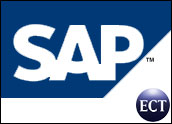
SAP has announced it will acquireBusiness Objects for about US$6.78 billion. The French business intelligence vendor is one of the few assets on the market able to go head to head withHyperion, which Oracle bought earlier this year for $3.3 billion.
The acquisition will allow SAP to move into the BI marketplace and offer an integrated package to customers on a faster cycle, according to SAP CEO Henning Kagermann.
We are highly committed to the next generation of applications serving business users. The combination of SAP and Business Objects in their respective domains will benefit customers, prospects, partners, employees and shareholders,” Kagermann said.
“The acquisition of Business Objects is in keeping with SAP’s stated strategy to double our addressable market by 2010 as announced in 2005,” Kagermann pointed out. It will accelerate SAP’s growth in the business user segment, while complementing the company’s successful organic growth strategy.
Complementary Package
Business Objects will continue to operate as a stand alone company but will work with SAP to integrate its products into the SAP product line. John Schwarz will stay on as the CEO of Business Objects and is expected to become a member of the SAP Executive Board.
SAP noted that functionality in Business Objects will complement related offerings in its portfolio, including its governance, risk and compliance modules; business intelligence in the SAP platform; and corporate performance management capabilities gained in recent acquisitions from OutlookSoft and Pilot Software.
The companies have not put forth a time line for when the market can expect to see integrated offerings from the two firms.
Broad Impact
The impact of the acquisition will likely be felt throughout SAP’s entire portfolio, Sheryl Kingtone, a Yankee Group analyst, told CRM Buyer.
“The whole point is to make sure the data going into the system is usable and understandable by line of business applications — and that it will play in the dashboards, improved reporting and other processes that are based or focused around decision-making.”
That said, having Business Objects under its hood is not likely to nudge a wavering client from one side of the ledger to the other, she added.
“No one is going to base a buying decision on a reporting tool. This is more about usability and keeping existing customers happy with better integration of the BI function and the business line,” Kingstone said. “It is also a great deal for SAP. Business Objects is a well respected reporting application.”
Build Not Buy – Until Now
Indeed, Wall Street has indicated it is pleased with the tie up, says Fred Ruffy, analyst with the investor education firm Optionetics.
When the deal was made public, shares of Business Objects surged, and were up $7.73 to $58 in mid-day trading on Monday.
The markets like the move for the drivers behind the deal, Ruffy told CRM Buyer. For SAP, it means a competitive position in business intelligence software, which is considered important functionality for its large base of corporate customers. It will also allow SAP to add features to existing products — and to generate new revenues by upselling Business Object’s products to current SAP customers.
The acquisition is something of a departure from SAP’s normal business strategy, though, Ruffy said.
“In contrast to Oracle, which has been growing through a series of big and small mergers, SAP’s stated objective has been to pursue growth organically,” he explained — that is, to refrain from making large acquisitions. At close to $7 billion, this is SAP’s largest takeover to date.
However, there were rumors in press and industry circles that Business Objects was preparing itself for acquisition, Ruffy noted, and even though the acquisition does not reflect SAP’s standard operating procedure — it is a reflection of the larger tech industry.
“Business Objects, BEA Systems, Novell and BMC Software have been considered takeover plays following a wave of consolidation in the software industry over recent years,” he pointed out. “Other large deals in recent years include acquisitions of PeopleSoft, Veritas Software, Siebel and Hyperion Solutions.”
While it is likely the deal will go through — the two companies’ boards of directors agreed on the terms over the weekend — there is a remote possibility that a competing bidder might emerge, Ruffy said.
“There might be more to the story before the deal is actually done,” he remarked.






















































